What does art, shopping retail, web design, sports, cosmetics, and e-commerce website have in common? Absolutely nothing, except these, are all various categories available on Facebook when setting up pages. Since 2019, Facebook removed the limit on the number of pages a user can set up. Unfortunately, Facebook did not take into account, how this innocent feature update, if in the wrong hands, can do harm. In the case of Azerbaijan, this is exactly what happened, when Meydan TV, an independent Berlin-based news platform, shared a call for applications for a program, held in partnership with Brussels-based human rights organization, International Partnership for Human Rights in February 2021.
The project aimed to bring together journalists, writers, bloggers, and content creators from Azerbaijan willing to produce thematic media pieces on civic, social, cultural, and political issues from the country. It was an opportunity for young content creators to get some international exposure and work with professional mentors.
Meydan TV shared the announcement via its Facebook page [the website is blocked in Azerbaijan since 2017]. Similarly, IPHR shared the announcement on its website. Very quickly the post received hundreds of comments. Most if not all were negative. The commenters accused Meydan TV and IPHR of involving Azerbaijani youth in pro-Armenian propaganda. These users, described IPHR, as an organization that is a long-known enemy to the Azerbaijani people and the state. Accusing of brainwashing of the youth, IPHR and Meydan TV were blamed for the radicalization of youth and for their openly Armenian agenda.
IPHR has worked in Azerbaijan and country-related projects for almost a decade, supporting civil society on the ground.
IPHR shared the incident with AIW, and provided a list of screenshots taken from the post on Facebook. AIW, analyzed the screenshots of all comments to see whether these were genuine users, trolls, or bot accounts. On Facebook, although a user can create and manage multiple pages, only one personal account is allowed according to Facebook’s Community Standards. Whereas Twitter allows you to toggle between up to five accounts [but there are no pages there]. Finally, to clarify the terminology about bots and trolls, according to IJNET:
A bot is an automated social media account run by an algorithm, rather than a real person. In other words, a bot is designed to make posts without human intervention.
A troll is a person who intentionally initiates online conflict or offends other users to distract and sow divisions by posting inflammatory or off-topic posts in an online community or a social network. Their goal is to provoke others into an emotional response and derail discussions.
Trolls may rely on bots to amplify their message.
A botnet is a network of bot accounts managed by the same individual or group. Those who manage botnets, which require original human input prior to deployment, are referred to as bot herders or shepherds.
In order to identify, whether any of the accounts actively engaging under Meydan TV’s post fit the descriptions above, AIW simply checked the names of users on Facebook. All of the names AIW analyzed were set up as pages on Facebook between July 2020 and February 2021. Only one name, among the list of analyzed users, was an actual profile, albeit likely a mistake or intentional, as it had only two posts made since July 2020, when the profile was set up.
| Name |
Format |
Date created |
Category |
| Emil Caniyev |
Page |
Feb.21 |
Sports and recreation |
| Fuad Alicanov |
Page |
Feb.21 |
Shopping & Retail |
| Sevinc Hesenli |
Page |
Feb.21 |
Beauty, Cosmetic & Personal Care |
| Ceyhun Haqverdiyev |
Page |
Feb.21 |
Shopping and retail |
| First Lady gözəllik salonu |
Page |
Feb.21 |
Beauty salon |
| Röya Nuriyeva |
Page |
Feb.21 |
Personal blog |
| Faiq Ferzaliyev |
Page |
Feb.21 |
Shopping and retail |
| Hesenoffa Govher |
Page |
Feb.21 |
Sports and recreation |
| Asadova Guler |
Page |
Feb.21 |
Shopping and retail |
| Abdulkarim Kerimzade |
Page |
Feb.21 |
Advertising agency |
| Aksana Rasulova |
Page |
Feb.21 |
Shopping & Retail |
| Medine Yaqubova |
Page |
Feb.21 |
Shopping & Retail |
| Aytan Yusuflu |
Page |
Feb.21 |
Shopping & Retail |
| Gunel Safarova |
Page |
Feb.21 |
Public figure |
| Elnur Salayev |
Page |
Feb.21 |
Shopping & Retail |
| Jala Samadova |
Page |
Feb.21 |
Shopping & Retail |
| Leyla Abasova |
Page |
Jan.21 |
Shopping & Retail |
| Konul Safarli |
Page |
Jan.21 |
Arts & Entertainment |
| Rasad Fegan |
Page |
Jan.21 |
Shopping & Retail |
| Ceyran Khalilova |
Page |
Jan.21 |
Public & Government Service (at least this one picked the right affiliation) |
| Humbatova Aybeniz |
Page |
Jan.21 |
Shopping & Retail |
| Akif Gurbanli |
Page |
Jan.21 |
Personal blog |
| Aydan M-ova |
Page |
Jan.21 |
Shopping & Retail |
| Turan Ceferli |
Page |
Jan.21 |
Shopping & Retail |
| Hesenova Guler |
Page |
Jan.21 |
Shopping & Retail |
| Kerimli Turane |
Page |
Jan.21 |
Shopping & Retail |
| Murad Gurbanov |
Page |
Jan.21 |
Shopping & Retail |
| Aytac Pashayeva |
Page |
Jan.21 |
Arts & Entertainment |
| Mammadova Gulu |
Page |
Jan.21 |
Shopping & Retail |
| Nuri Amirli |
Page |
Jan.21 |
Sports and recreation |
| Iska Salimov |
Page |
Dec.20 |
Not a Business |
| Gunay Haqverdiyev |
Page |
Dec.20 |
Go-Kart Track |
| Safura Alizade |
Page |
Dec.20 |
Sports and recreation |
| Anar Mammadov |
Page |
Dec.20 |
Shopping & Retail |
| Namiq Asadov |
Page |
Nov.20 |
Men’s Clothing Store |
| Ildirim Agayev |
Page |
Nov.20 |
E-commerce Website |
| Neymat Azizov |
Page |
Nov.20 |
Gaming video creator |
| Kenan Babayev |
Page |
Nov.20 |
Interior Design Studio |
| Aslan Nuriyev |
Page |
Nov.20 |
real estate agent |
| Qafqaz Rahimli |
Page |
Oct.20 |
Personal Blog |
| Jama Bagirova |
Page |
Oct.20 |
Design and fashion |
| Ceyhun R-li |
Page |
Aug.20 |
e-commerce Website |
| Cabanov Cabbar |
Page |
Aug.20 |
health and wellness website |
| Vasif Agabeyli |
Profile |
Jul.20 |
Vasif Agabeyli |
In October of last year, Facebook whistleblower Sophie Zhang wrote a memo about how the Facebook company was ignoring manipulation of its platforms by political parties and heads of government. Weeks after Zhang was fired and leaked this information, Facebook removed more than 1,000 accounts and close to 8,000 pages which were part of a massive network of fake activity connected to Azerbaijan’s ruling party reported BuzzFeedNews. At the time Facebook said the network was likely operated by the youth branch of the ruling New Azerbaijani Party. These accounts and pages were used “to post comments that attacked opposition figures and independent media” and boost the government’s image.
According to BuzzFeedNews, Nathaniel Gleicher, Facebook’s head of security policy, “said the close to 8,000 pages used in the operation were set up to look like personal profiles and were used to leave comments. “This network appeared to engage individuals in Azerbaijan to manage pages with the sole purpose of leaving supportive and critical commentary on pages of international and local media, public figures including the opposition, and the ruling party of Azerbaijan, to create a perception of widespread criticism of some views and widespread support of others.”
What is striking however is despite the leak that was first flagged in 2018 by Sophie Zang, nothing was done about it. Only after she leaked the information that Facebook took measures by opening an internal investigation leaving Zang’s name out of it. But judging from attacks on Meydan TV’s post, the activity continues while damaging the reputation of others.
![inauthentic pages target independent news platform – will Facebook take notice [part 3, the case of Azadliq Radio]](https://www.az-netwatch.org/wp-content/uploads/2020/03/glenn-carstens-peters-npxXWgQ33ZQ-unsplash-600x400.jpg)
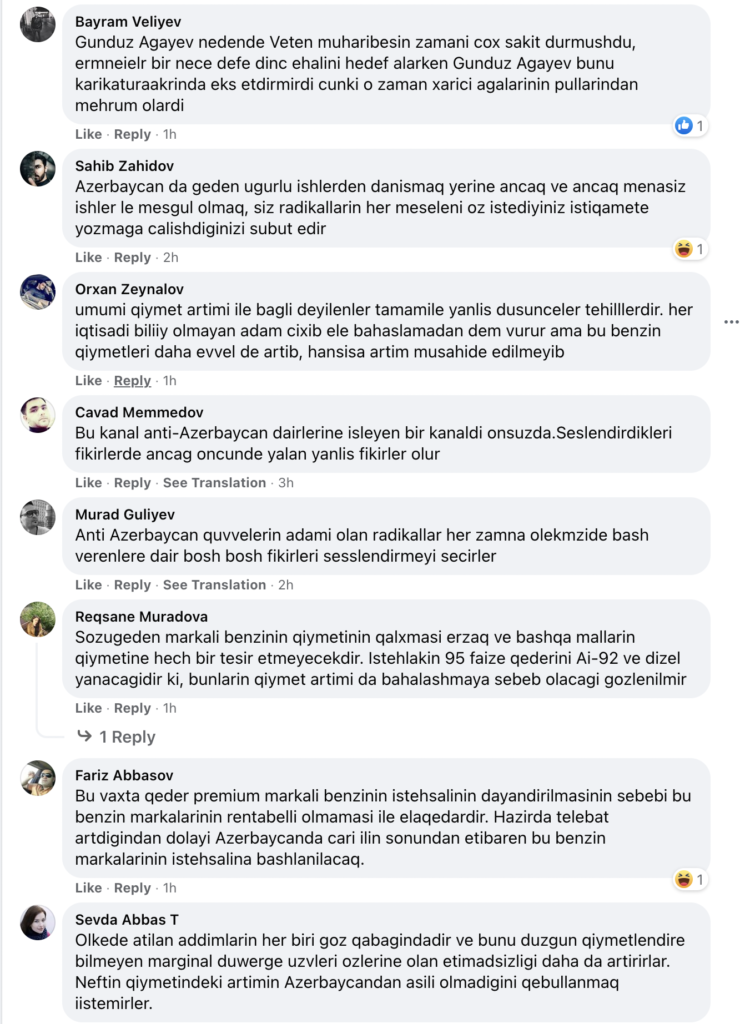
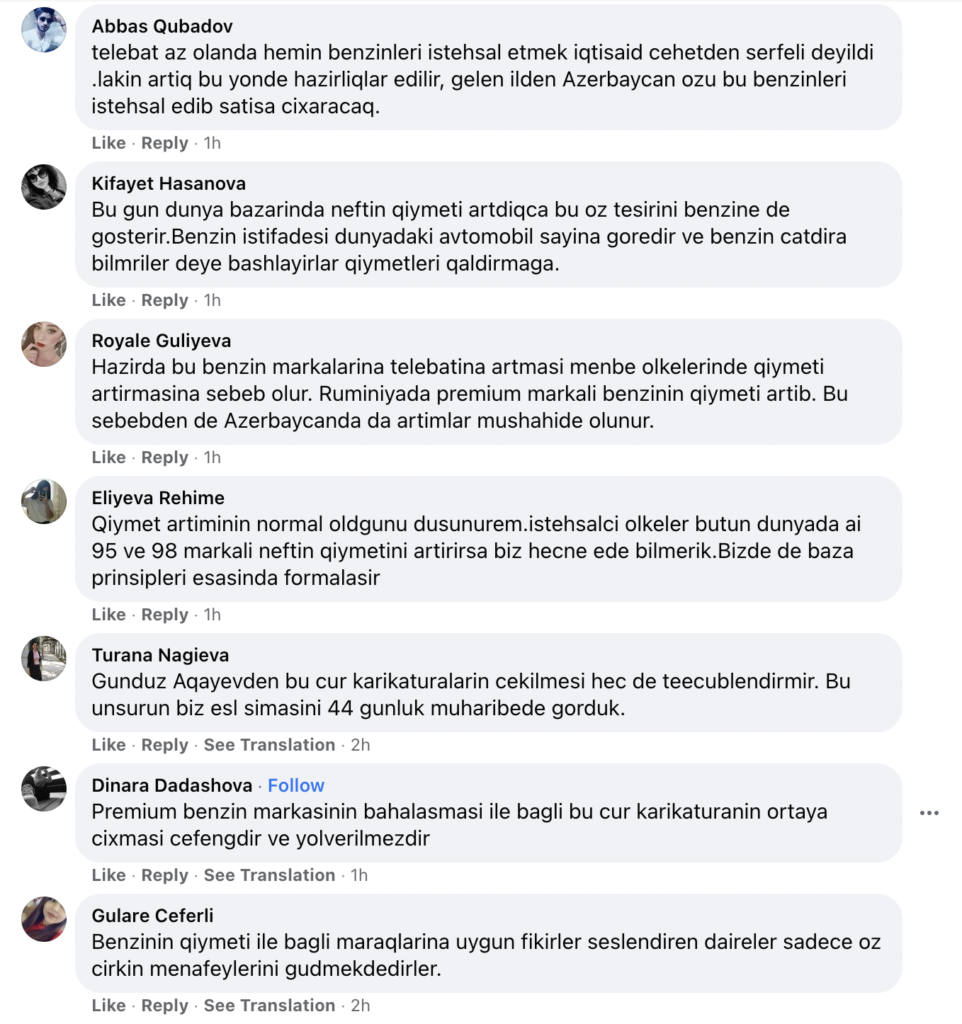
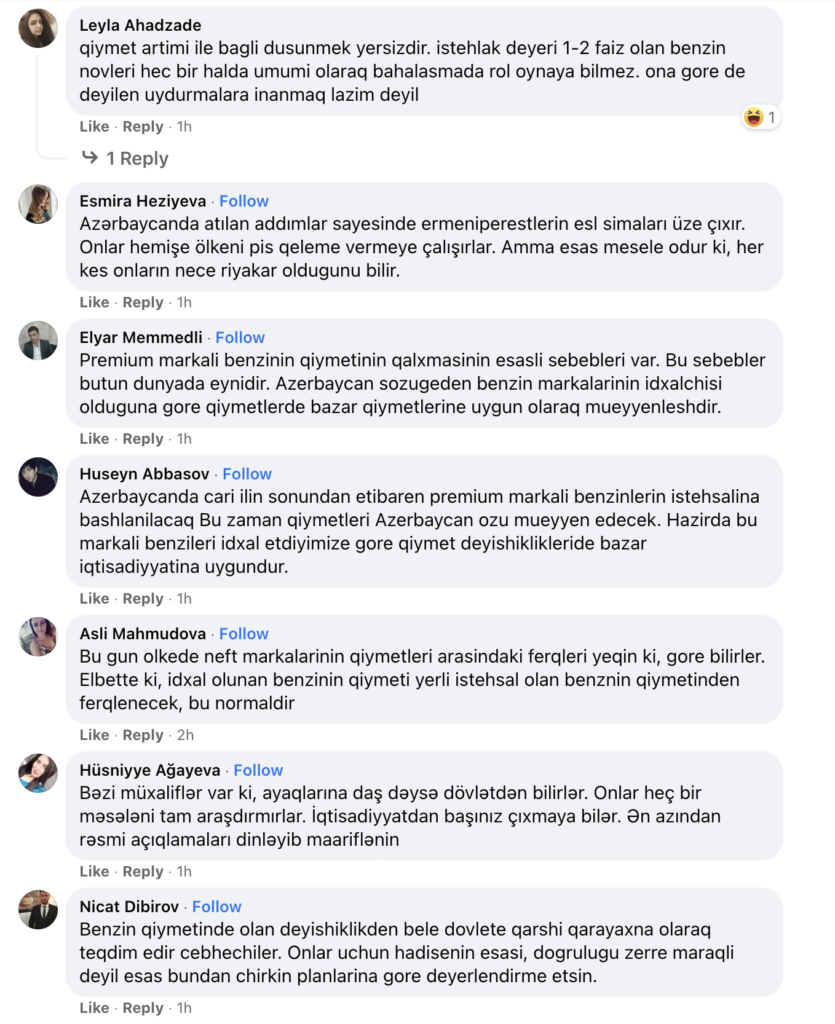
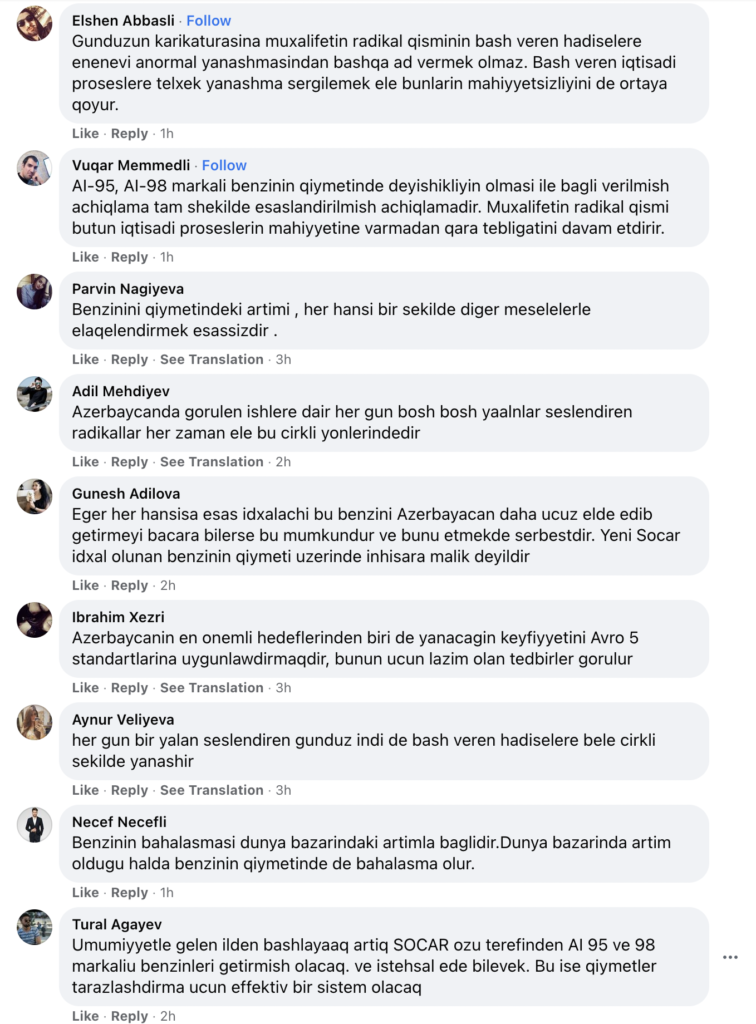
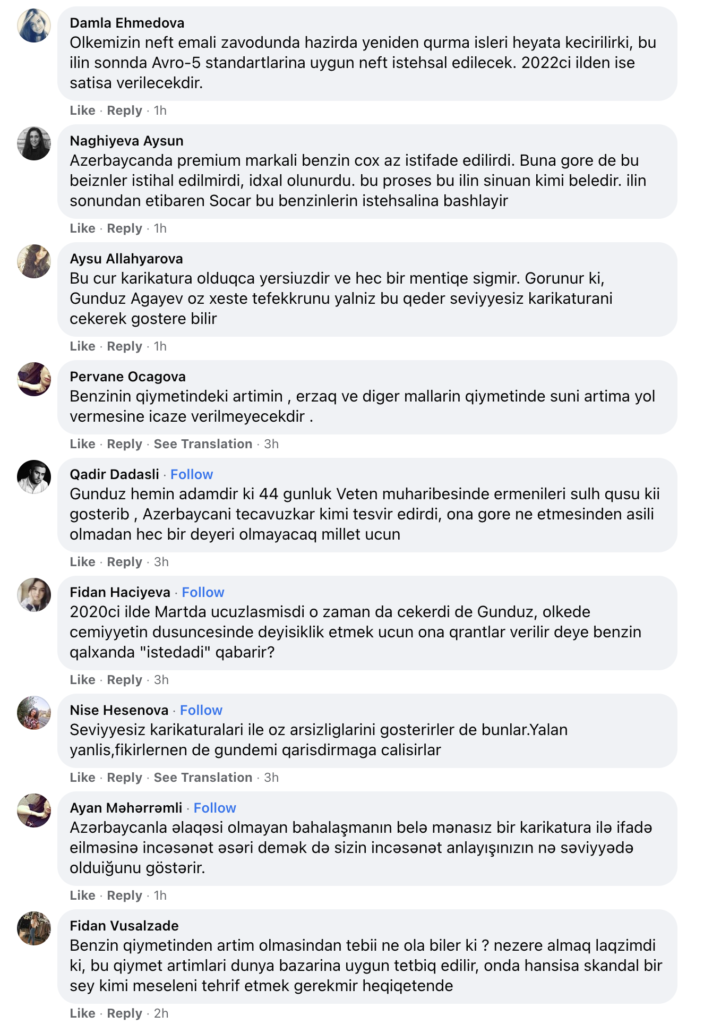
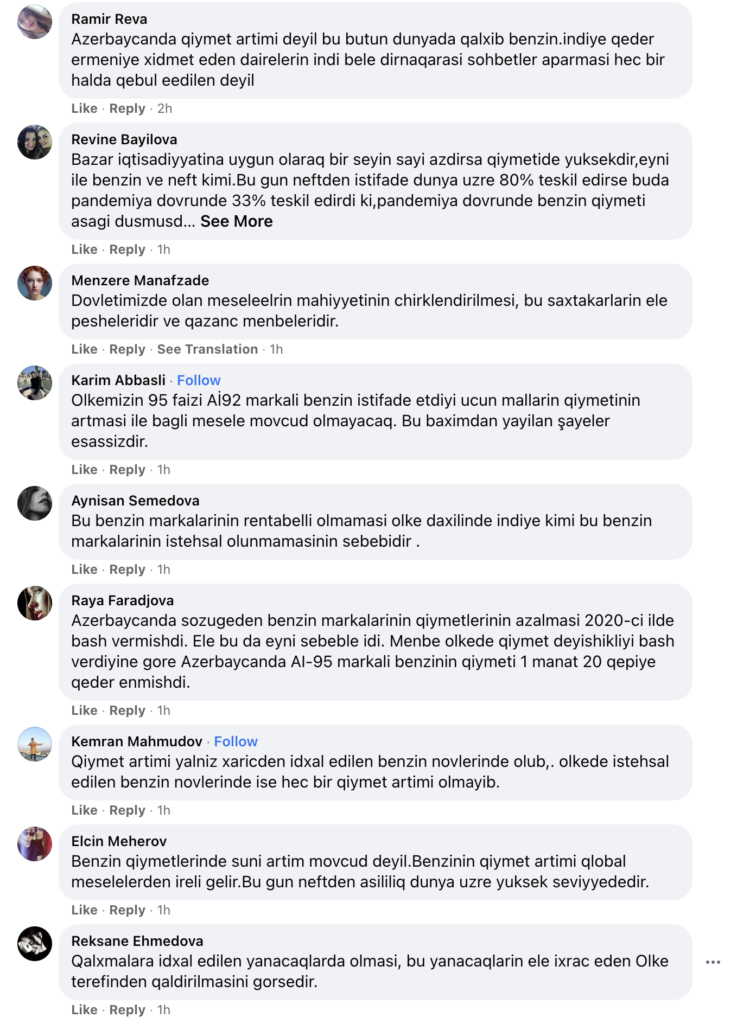
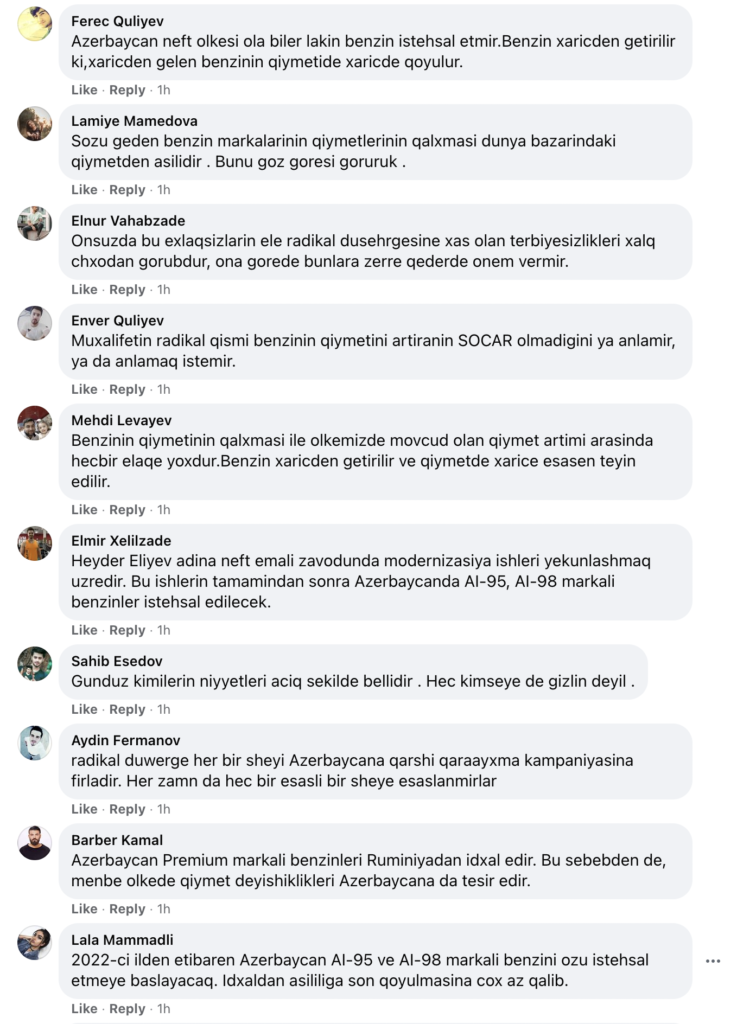
![inauthentic pages target independent news platform – will Facebook take notice [part 2, the case of Mikroskop Media]](https://www.az-netwatch.org/wp-content/uploads/2020/03/kon-karampelas-HUBofEFQ6CA-unsplash-600x400.jpg)